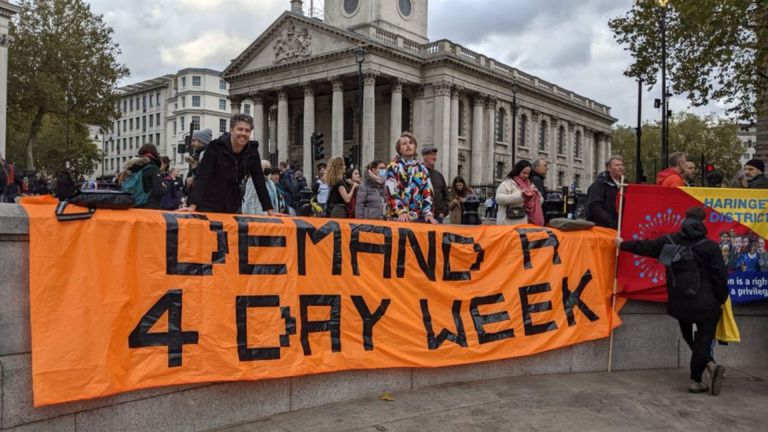And research from Carers Week 2020 showed that there were 1.1 million unpaid carers in Scotland – an increase of 392,000 since the start of the crisis – of which 61 per cent are women, and 78 per cent said more is required of them as a carer than before lockdown.
Engender executive director Emma Ritch told The Big Issue: “The Covid-19 pandemic has highlighted what many of us already knew – that our society only functions because of the invisible and undervalued work done by women providing care, childcare, and undertaking the majority of housework.
“Women were already overstretched by balancing paid work with domestic roles. Now we are seeing women’s unpaid work increasing further with additional home schooling, taking over care of elderly relatives as social services are reduced, and picking up more household chores even when cohabiting.
The most recent data for Scotland showed that women in opposite sex couples were doing 68 per cent of the housework and childcare, Engender said, but added that the issue is “not specific to Scotland nor the UK”.
Institute for Fiscal Studies research showed that women were still doing more unpaid work at home regardless of their own employment status and were still doing more childcare and housework when they were the higher earner in the family.
We must ensure that women are not forgotten
Research by the UN Development Programme showed that women were doing 2.5 times more care than men on a global scale, while women in the EU were spending 13 hours more than men on unpaid labour per week. It’s a pattern which has been “stubbornly slow to disrupt”, the Engender report said.
Advertising helps fund Big Issue’s mission to end poverty
The increase in unpaid and domestic work combined with lost employment and increased gender-based violence alongside stress and anxiety levels among women, the organisation said, with major changes needed to improve wellbeing and opportunities for women.
The Scottish Government must ensure women can receive an income “equivalent to at least the real living wage” for their work caring for older and disabled people, Engender recommended, and warned that there are too many barriers in place which could stop women re-entering the workforce.
Ritch added: “As we begin to move out of the initial stages of the crisis and start to look ahead to rebuilding our economy, we must ensure that women are not forgotten.
“We need massive investment in a care economy, new ways to measure economic success, and an understanding of the power that unequal unpaid work has to rolling back women’s equality.”
Women who cannot combine their paid work and childcare should be compensated too, they said, to help women stay in the workforce.
Advertising helps fund Big Issue’s mission to end poverty
The researchers also said Holyrood must improve its collection of gender-segregated data in order to fully reflect the experiences of women and take steps to address the mental health of people who have been working as carers through the Covid-19 crisis.
The Scottish Government said it was “committed to producing rigorous analysis on women’s position in the labour market in light of the pandemic”.










